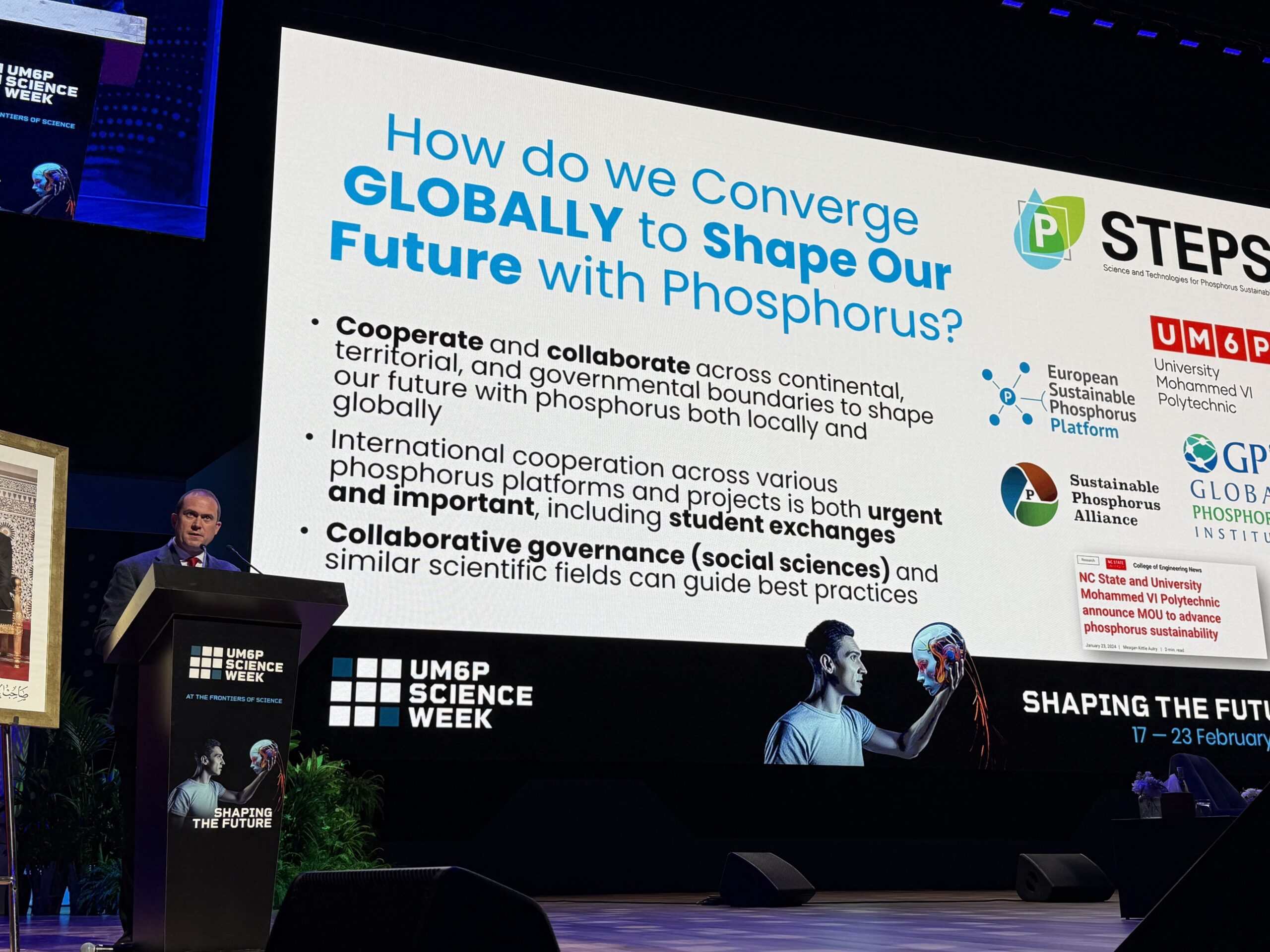STEPS leads discussion of phosphorus sustainability at UM6P’s Science Week
STEPS faculty traveled to Benguerir, Morocco, to deepen our partnership with key stakeholders in phosphorus sustainability
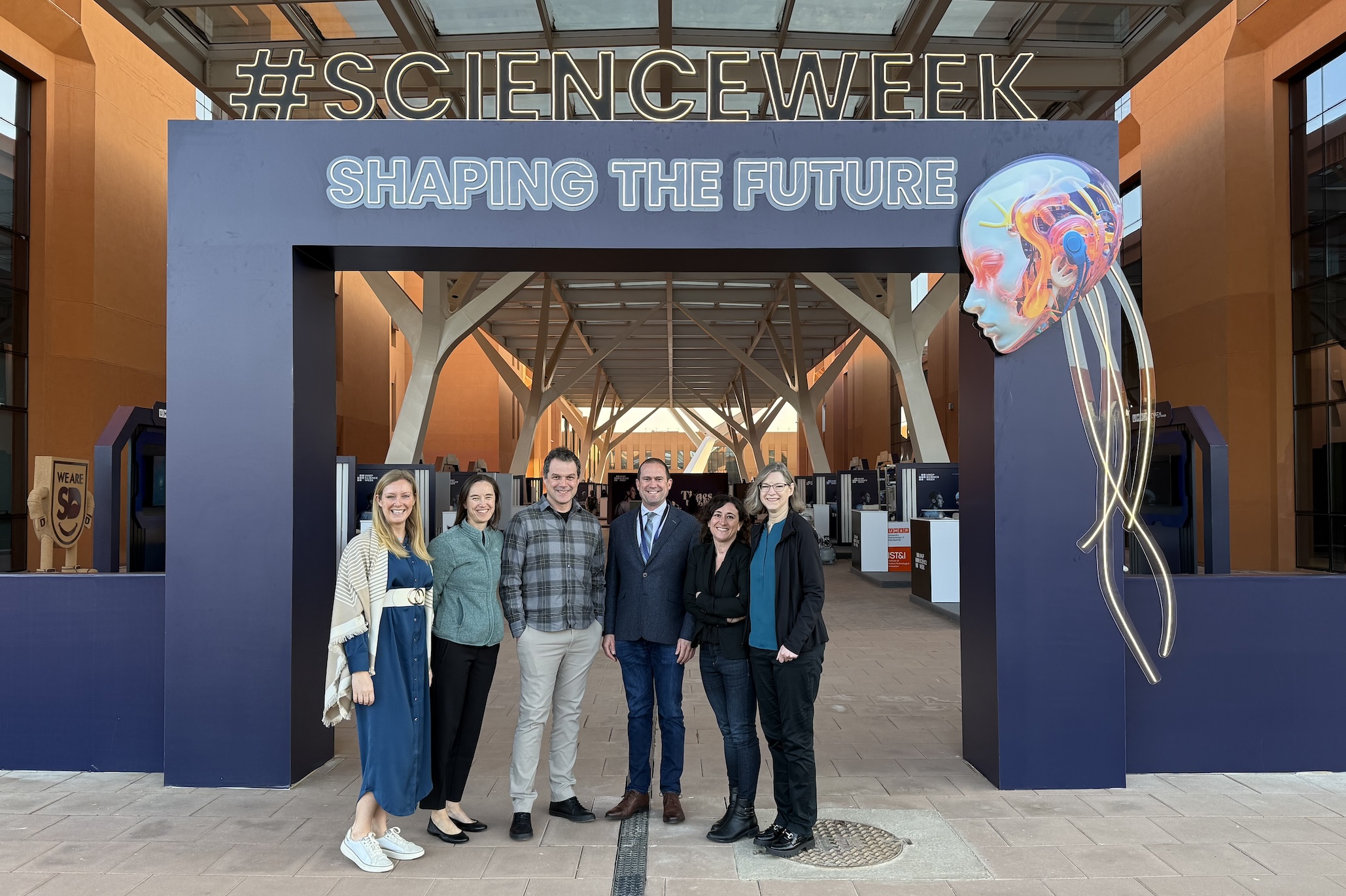
By: Meagan Kittle Autry, Ph.D., Director of Science Communication
Science and Technologies for Phosphorus Sustainability (STEPS) Center faculty members traveled to Benguerir, Morocco last week to participate in the University of Mohammad IV Polytechnic’s (UM6P) annual Science Week conference. This year was the fifth edition, with the theme “Shaping the Future.” The organizers of Science Week bring together renowned scientists from around the globe to speak at the event and engage with their graduate students.
STEPS’ Director Jacob Jones, Kobe Steel Distinguished Professor in Materials Science and Engineering, gave a keynote address on the first morning, “Shaping Our Future with Phosphorus.” In his talk, Jones emphasized the importance of events like Science Week, which brought together researchers from across many disciplines, in addressing grand challenges of our time. He shared the STEPS Center’s convergence research approach, demonstrating how our efforts to work at the nexus of disciplines instead of in traditional “siloed” approaches helps us achieve transformative breakthroughs for the benefit of society. Jones highlighted key findings from the Center thus far on phosphorus (P) sustainability, such as our advance in large-scale spatiotemporal understanding of P across the United States through Bayesian hierarchical modeling (Karimi and Obenour, 2024).
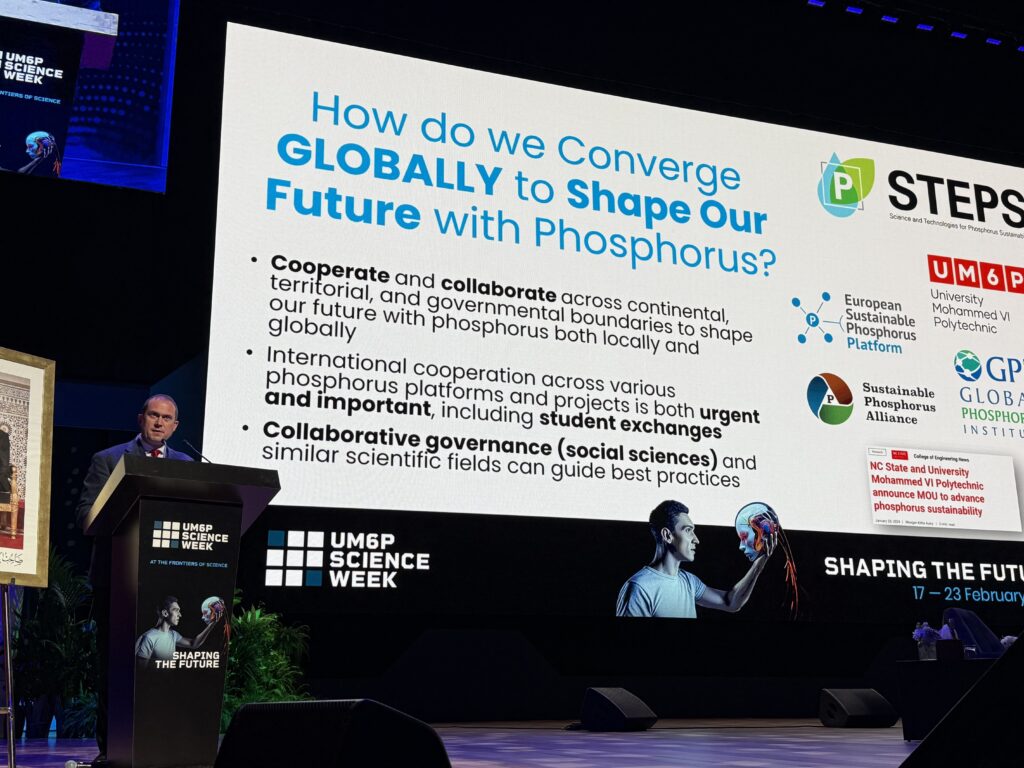
On Tuesday, several of STEPS’ faculty gave invited talks to share our work on phosphorus sustainability. In the morning, Drs. Maude Cuchiara (Associate Research Professor in Materials Science and Engineering) and Meagan Kittle Autry (Associate Teaching Professor in Civil, Construction, and Environmental Engineering) gave a Masterclass to UM6P doctoral students and faculty on STEPS’ convergence research approach. They shared the Center’s innovative methods for ensuring success in complex research, including our common habits of mind, stakeholder engagement practices, and strategies for communicating across disciplines.
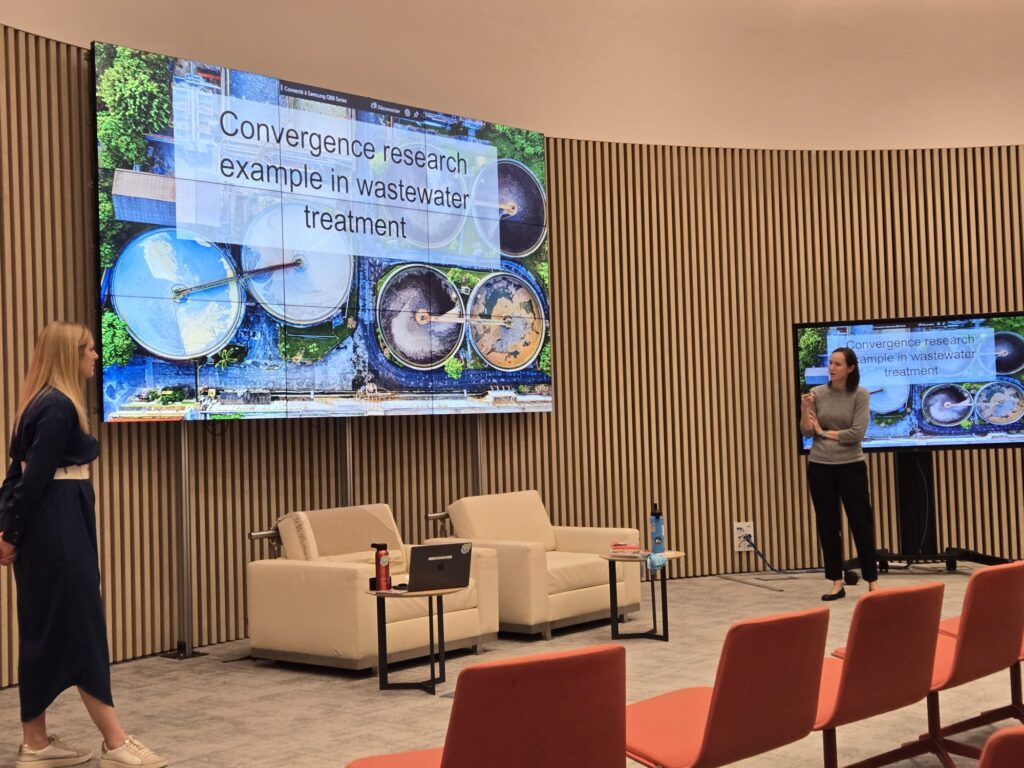
Tuesday afternoon was a panel session on phosphorus and sustainability hosted by the Global Critical Zone Science chair at UM6P. Dr. Ross Sozzani (Professor in Plant and Molecular Biology) presented, “Biomaterials and Proteins to Improve Phosphate Availability to Plant Cells.” Dr. Ruben Rellan-Alvarez (Associate Professor in Structural and Molecular Biochemistry) shared his work, “Using Crop Natural Genetic Variation to Improve Phosphorus Efficiency.” Dr. Amy Grunden (William Neal Reynolds Distinguished Professor in Plant and Molecular Biology) spoke on “Biotechnological Application of Beneficial Microbes for Sustainable Agriculture.” These faculty concluded the week with tours of several research facilities at UM6P and the African Plant Nutrition Institute. All week long, our team had important conversations exploring the unique and shared challenges of P management across different regions of the world.
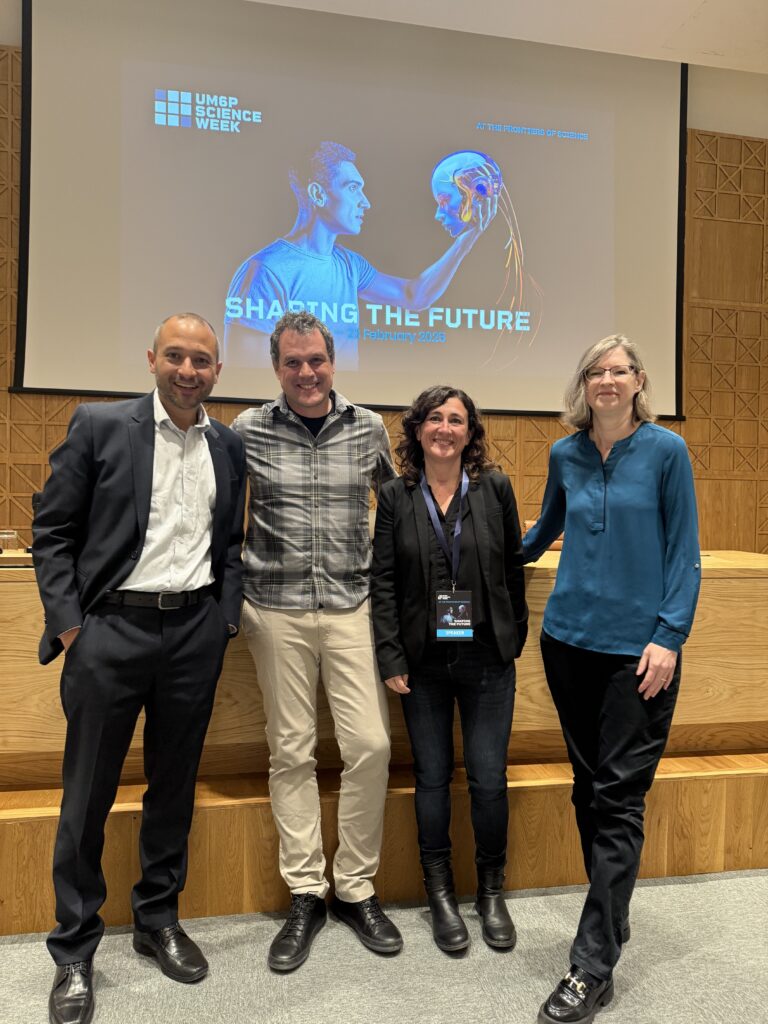
STEPS and UM6P continue to deepen our partnership initiated last year with our memorandum of understanding. STEPS also received an internationalization seed grant from NC State University to expand our research collaborations in Morocco. This visit to UM6P for Science Week enabled us to demonstrate our global leadership in the area of phosphorus sustainability and our ability to partner with key stakeholders that will allow us to accelerate solutions toward a sustainable food-secure future.
- Categories:


